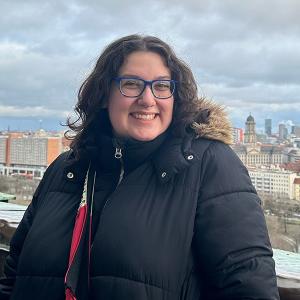Today, I’m sharing a couple anecdotes that for me seem to indicate differences in the way we think about music and music education in the U.S. and the way it’s done here in Buenos Aires, Argentina. I nixed the longer, boring-er, more theoretical entry I had in mind to bring you these two quick observations. I’m sure I’ll return to the subject, though.
“So what instrument do you play?”
I get this question a lot wherever I am. As soon as I tell people that I study music composition, they put on a face that says both, “Wow, that is amazing” and “I have no clue what that means, really.” Then, they almost always ask, “So what instrument do you play?” Yes, you too thought that.
I really confuse people when I answer that I don’t play anything. “Oh, I used to play the piano and the viola,” I say, “but I don’t practice anymore or anything.” At this point, many Americans no longer have any clue what I’m talking about because they’ve never heard of the viola before. Argentines, on the other hand, think I’m talking about an electric guitar. This confusion is easily resolved, I have found, by quickly pantomiming bowing a viola (or “a big violin,” as I tell those who are still confused).
The fact that the word viola also refers to a rock/pop instrument strikes me as a sign of the influence popular music has here. Now, I’m not saying academic (i.e. classical) music has the greatest influence on American culture these days, but it’s certainly a lot more present. Porteños (the inhabitants of Buenos Aires) are likely to be much more familiar with stringed instruments as they are used in tango bands and folk music, and very few of them grew up having orchestras and bands in school.
Orchestration and the mysterious superintendent
My fellow composition majors back in Oberlin will be wrapping up their class in the next few weeks, bringing scores and parts to the orchestra or wind ensemble to be read. Meanwhile, I’m wrapping up my own orchestration work at IUNA (the National Arts University Institute). Literally.
My T.A. (common in Buenos Aires, virtually non-existent in Oberlin) sent out a mysterious email two nights ago detailing the final exam process. The exam is an oral defense of a fragment of a Debussy piece we each orchestrated. Though classes ended last week, we have until this Friday to turn in the piece. The exam itself is not until early December. Seems simple, right? Wrong. For some reason I have yet to understand, I must seal my orchestration in an envelope marked with my name, home address, phone number, course title, and current date and then deliver it to the superintendent of my professor’s apartment building, which, conveniently, lies on the other side of town, at least 45 minutes by bus away from my apartment. Then, I must wait for the professor to call me to tell me if I should take the final exam.
Three things are running through my head: First, that this is remarkably inconvenient for us students whereas it is just the opposite for the professor. Second, why the envelope? They’re expensive here. Third, what does the superintendent have to do with any of this? Maybe he’s secretly the one controlling my orchestration class.
Actually, this reveals a bit of the bureaucratic nature of higher education in Argentina. Indeed, it would be far too simple for us to turn in our final projects during the last class. IUNA, in particular, is a remarkably disorganized bureaucracy composed of numerous formerly-separate art and music schools. And, as in the case with all bureaucracies, the higher-ups are clearly in cahoots with those who manufacture envelopes.


